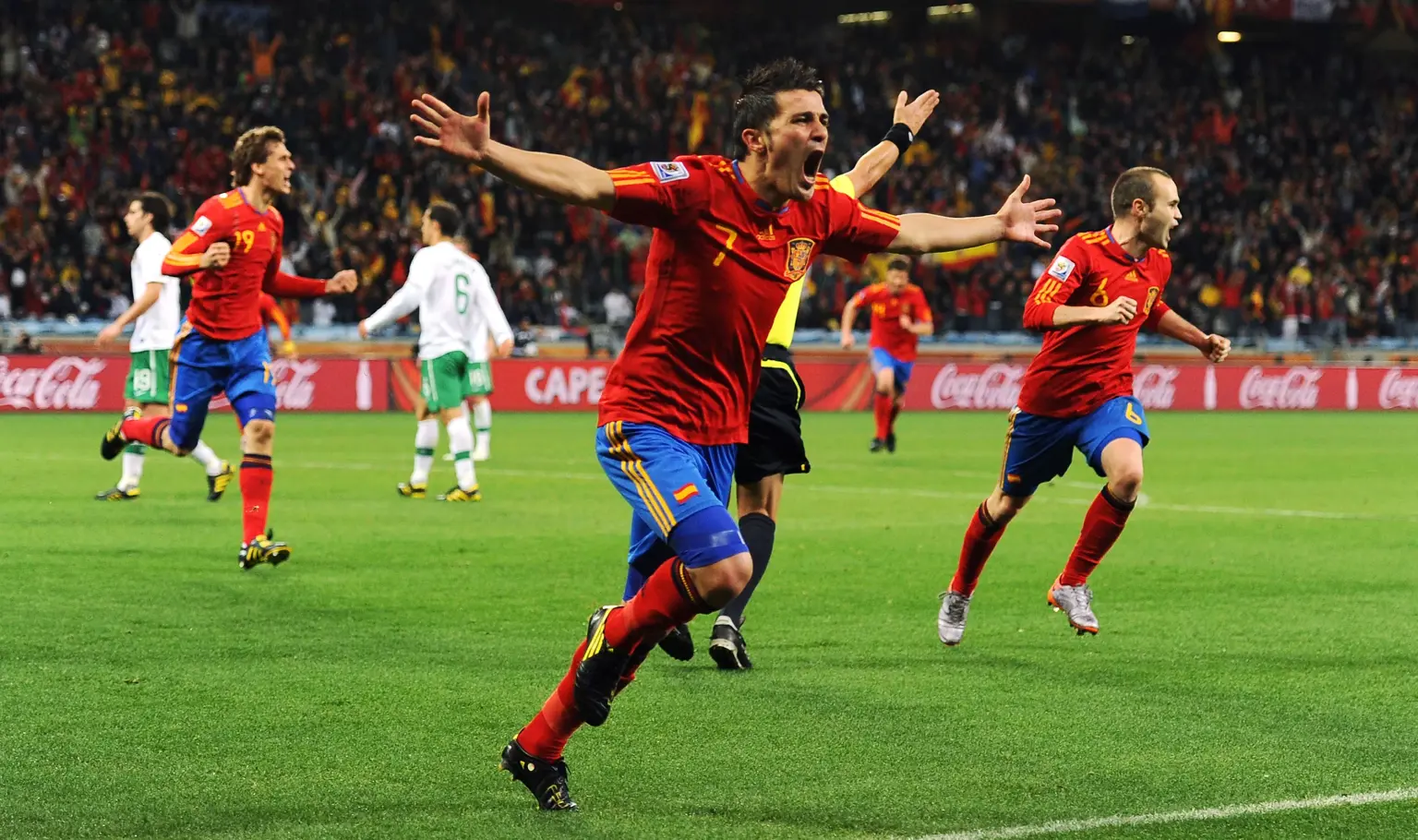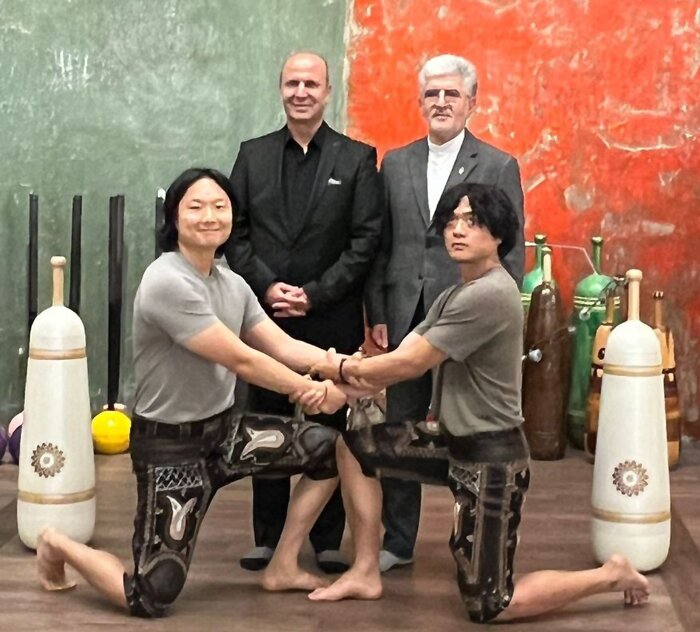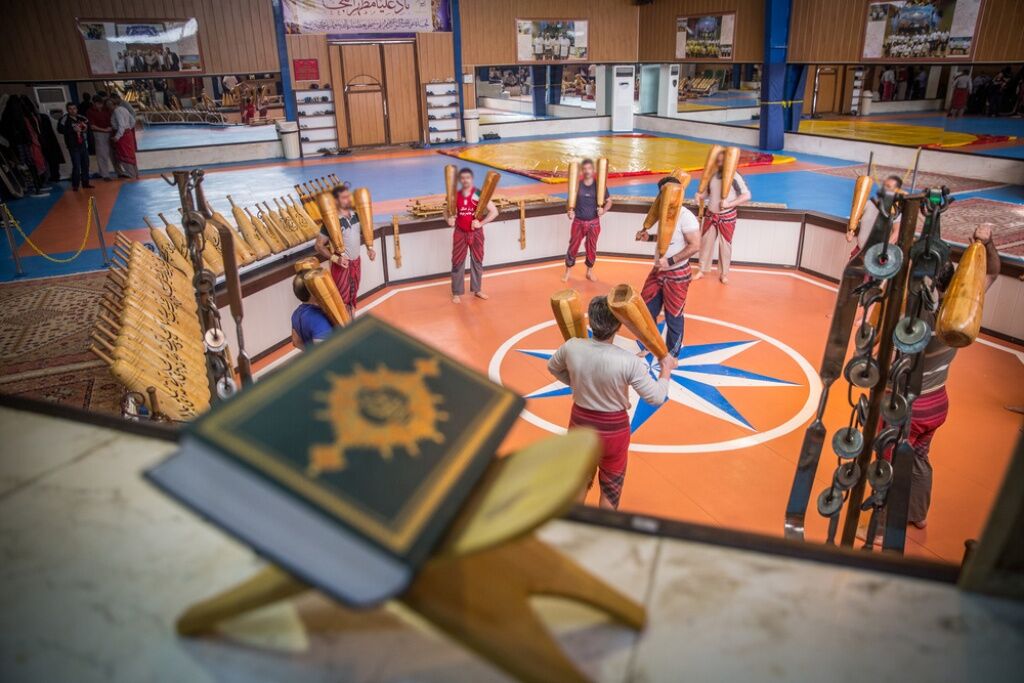“I’d choose David Villa over Kaka and Cristiano Ronaldo,” declared Vicente Del Bosque in 2009.
The moustahced Salamancan laddering the thumb-sucking Asturian above the last two recipients of the FIFA World Player of the Year award was a shuddering shush. Del Bosque was perplexed that he had to play defence counsel for a 28-year-old who’d rippled nets with military regularity for every team he’d ever represented. Attacks on Villa’s position were nonetheless incoming as Spain readied for the FIFA World Cup™– from two directions.
Under Luis Aragones, a diehard Atletico Madrid man, Villa had not only stolen Raul’s place at Spain’s spearhead, but also his treasured No7 shirt. Real Madrid followers – one-third of the nation’s population – were outraged.
When Del Bosque, a Madrista through and through, assumed the controls following UEFA EURO 2008, a potential Raul recall monopolised the headlines. The Blancos legend hit 18 goals in 37 La Liga games in back-to-back campaigns. He declared his desire to dress in red once again. Del Bosque welcomed the news.
There was also a kid-versus-kid debate. Fernando Torres, with Villa absent, had scored the only goal in UEFA EURO 2008 final. ‘El Niño’ also averaged 0.82 goals per game for Liverpool in the 2009/10 Premier League. Yet Del Bosque’s faith in ‘El Guaje’ was abundant and unshakeable. When Spain’s South Africa 2010 campaign began, Raul was on his sofa, Torres was on the bench, and Villa was leading the line.
Its maiden hour-and-a-half was dolorous. A goal Gerard Pique described as “something out of a cartoon sketch” snatched Switzerland a 1-0 win. The backlash was wicked. Among it were shouts for Torres to oust Villa. “It was never even a consideration,” insisted Del Bosque.
Villa swiftly showed why. He bagged a brace in a 2-0 win over Honduras, chipped home the first and set up Andres Iniesta’s winner in the 2-1 reverse of Chile, and was Spain’s solitary marksman in an all-Iberian clash with Portugal in the last 16. Then, after craftily winning a penalty, which Xabi Alonso spurned on a retake, Villa snatched a last-gasp win over Paraguay.
Spain were in the semis. Villa had scored or set all six of their goals en route. The hero’s cape was passed to Carles Puyol against Germany and Iniesta against Netherlands as Spain seized a first star. Villa’ contribution to their conquest had, however, been colossal.
“‘El Guaje’ was exceptional,” recalled Puyol. “He was fundamental to our success. His work-rate, his skill, his goals. They weren’t just any goals, but goals when Spain needed them.”
Iker Casillas concurred: “We wouldn’t have won the World Cup without David Villa. He was one of the best players in the world at the time, and he showed up in South Africa. When the pressure was on – and it was intense pressure – he produced. I’m just glad it was Andres and not him that scored the goal in the final or we would have never heard the end of it!”
La Roja’s capstone wasn’t an offshoot of outscoring adversaries. They conceded just twice in South Africa – the joint-lowest figure for a World Cup-winning team – and remain the only one to go through its knockout phase without conceding. They had just three marksmen and netted only eight goals – both lows for a triumphant team. What they had in South Africa, however, was match-winning marvel.
If Del Bosque had ranked Villa above Kaka and Ronaldo going into the tournament, during it the Spain No7 stole a piece of history set by a GOAT contender when he was in his mind-blowing pomp. Diego Maradona held the record for scoring or assisting the highest portion of a triumphant team’s goals at a World Cup: 71 per cent during his hallowed campaign in Mexico. Villa had managed 75 per cent of Spain’s in South Africa.
How many men can say they outmatched Maradona of ’۸۶?
- نویسنده : محمد مهدی اسماعیلی رها































Friday, 30 January , 2026